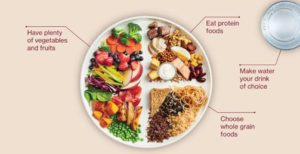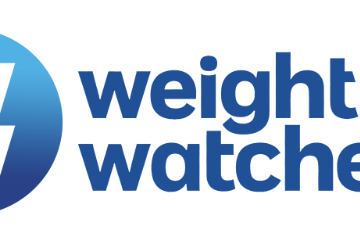With Covid-19 amongst us, we may be feeling like we are stuck indoors, our routines have gone out the window and our sleep patterns are all over the place! As a consequence we may be falling ill, stressed and lethargic. It may also be negatively impacting our mental health and wellbeing. Here, I am going to discuss some strategies and some scientific evidence with regards to what we can do during this Covid-19 pandemic to keep us healthy!
We know that sleep, exercise, diet and certain nutrients affect the immune system but there is no direct scientific evidence that these factors can prevent, treat or cure Covid-19.
However what we do know is that to boost our immune system, we can focus on ensuring a balanced diet, proper hydration, restful sleep, regular exercise, and stress control.
Supplement efficacy is unknown for Covid-19 however these MAY help:
1. Vitamin C
Vitamin C aids immune cells function, and it supports the physical barriers (such as the epithelial cells of your skin) that protect you from pathogens (1).
Many fruits and vegetables contain good amounts of vitamin C. Hitting at least your Recommended Dietary Allowance (RDA) of 75–120 mg/day is easy, even if you don’t like oranges. Focus on consuming an abundant amount of citrus fruits and a variety of vegetables (red peppers are GREAT!) The more colours the better! Foods rich in vitamin C include broccoli, cantaloupe, cauliflower, kale, kiwi, orange juice, papaya, red, green or yellow pepper, sweet potato, strawberries, and tomatoes.
2. Vitamin D
Vitamin D receptors are found throughout the body, and vitamin D is involved in many cellular processes, including the regulation of immune cells during infections (2). Low levels of vitamin D have been associated with worse immune function and increased rates of acute respiratory infection (3). Vitamin D is known as the sunshine vitamin as we get it from the sun, however, whilst stuck indoors this is hard to get.
Oily fish is naturally rich in vitamin D. Vitamin D is often added to milk during manufacturing (the milk has been fortified with vitamin D). Other frequently fortified foods include bread, margarine, and fruit juices (orange juice, in particular).
If you don’t know your vitamin D levels, and cannot get them tested, ensure that you are taking a safe maintenance dose of 600IU (15mcg) of D3 per day.
3. Zinc
Zinc is a dietary mineral that can bolster the immune system and thus offer some protection against the common cold and some other viral diseases. Lozenges specifically have been known to soothe the throat from any upcoming potential viruses (4, 5, 6).
Ideas for optimizing zinc intake from your diet:
- Add wheat germ to your cereals or yogurt;
- Throw beans and lentils into your soups, chilli sauces, and other sauces and dishes;
- Eat lean red meat once or twice a week.
- Take a zinc supplement of 5–15 mg/day.
Zinc sulfate and gluconate are the most researched forms for oral supplementation and are therefore preferred.
How can you reduce your risks of falling sick and staying healthy?
1. Eat a balanced – nutrient-dense diet
Focus on 3 different colour vegetables per meal. Two fruits per day and at least three servings of vegetables per day. Ensure adequate amounts of protein (at least palm size) at each meal of your day as well as at least one fistful of high fibre whole grain carbohydrates such as oats, bread, cereals, legumes, quinoa, whole-grain pasta and rice for breakfast, lunch and dinner. Focus on decreasing your intake of processed, high-fat foods such as pastries, biscuits and so forth and focus on whole foods such as fruits, nuts and seeds, legumes, lean proteins and healthy fats.

2. Drink plenty of fluids
Aim for 250ml water before or after each of your meals or set a reminder on your phone every hour to drink 250ml of water. Aim for 2L of water a day minimum.
3. Get some sleep
Getting enough quality sleep is extremely important for the immune system. Try to aim for 6 to 8 hours of quality sleep per night. If you struggle with sleep, focus on decreasing your exposure to light, noise, heat, alcohol and caffeine at least 2 to 6 hours before bedtime.
4. Manage your stress
Focus on doing activities that you enjoy doing to decrease stress such as going for walks, meditation, breathing, yoga, having that morning coffee that brings you joy and anything that makes you unwind from your day will help with this.
Headspace is a great app for meditation, starting with just 10 minutes per day. Your mind will thank you for this (7).
5. Exercise!
Sitting all day long is one of the worst health-related habits you can have (8). Try to get up and move for five minutes every half hour. You could also try alternating between different positions, such as working standing or sitting on a Bosu ball. Aim to stretch your legs by going for ‘set’ scheduled walks for at least 300m every 2 hours.
6. Set up a Routine
Many people are working from home which means that we are working longer hours and not allowing our bodies to ‘switch off’. I would recommend starting with a simple schedule. It doesn’t need to be crazy complicated. Begin by establishing the general structure of your days and build up from there. Follow these three steps:
- Outline when you want to wake up, eat, and go to sleep.
- Block off periods for work, play, exercise, and rest.
- Revise and tweak as needed.
You can also start each day by following these three steps:
- Create a list of what you want to get done today.
- Prioritize these tasks.
- Focus on the top 2–3 items on your list (9).
Making changes can seem like a big task at the moment, try and direct your energy and focus onto one aspect that can positively impact you. A small change, done often, leads to great results.
By Jenaed Brodell, Sports Nutritionist, Registered Dietitian
References
- Carr, A. C., & Maggini, S. (2017). Vitamin C and Immune Function. Nutrients, 9(11), 1211. https://doi.org/10.3390/nu9111211
- Brockman-Schneider, R. A., Pickles, R. J., & Gern, J. E. (2014). Effects of vitamin D on airway epithelial cell morphology and rhinovirus replication. PloS one, 9(1), e86755. https://doi.org/10.1371/journal.pone.0086755
- Prietl, B., Treiber, G., Pieber, T. R., & Amrein, K. (2013). Vitamin D and immune function. Nutrients, 5(7), 2502–2521. https://doi.org/10.3390/nu5072502
- Hemilä, H., Petrus, E. J., Fitzgerald, J. T., & Prasad, A. (2016). Zinc acetate lozenges for treating the common cold: an individual patient data meta-analysis. British journal of clinical pharmacology, 82(5), 1393–1398. https://doi.org/10.1111/bcp.13057
- Hemilä, H., & Chalker, E. (2015). The effectiveness of high dose zinc acetate lozenges on various common cold symptoms: a meta-analysis. BMC family practice, 16, 24. https://doi.org/10.1186/s12875-015-0237-6
- Hemilä H. (2017). Zinc lozenges and the common cold: a meta-analysis comparing zinc acetate and zinc gluconate, and the role of zinc dosage. JRSM open, 8(5), 2054270417694291. https://doi.org/10.1177/2054270417694291
- Blanck, P., Perleth, S., Heidenreich, T., Kröger, P., Ditzen, B., Bents, H., & Mander, J. (2018). Effects of mindfulness exercises as stand-alone intervention on symptoms of anxiety and depression: Systematic review and meta-analysis. Behaviour research and therapy, 102, 25–35. https://doi.org/10.1016/j.brat.2017.12.002
- Kelley, G. A., & Kelley, K. S. (2017). Exercise and sleep: a systematic review of previous meta-analyses. Journal of evidence-based medicine, 10(1), 26–36. https://doi.org/10.1111/jebm.12236
- Haspel, J. A., Anafi, R., Brown, M. K., Cermakian, N., Depner, C., Desplats, P., Gelman, A. E., Haack, M., Jelic, S., Kim, B. S., Laposky, A. D., Lee, Y. C., Mongodin, E., Prather, A. A., Prendergast, B. J., Reardon, C., Shaw, A. C., Sengupta, S., Szentirmai, É., Thakkar, M., … Solt, L. A. (2020). Perfect timing: circadian rhythms, sleep, and immunity – an NIH workshop summary. JCI insight, 5(1), e131487. https://doi.org/10.1172/jci.insight.131487







